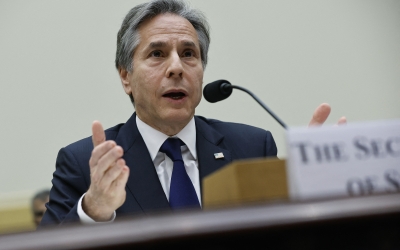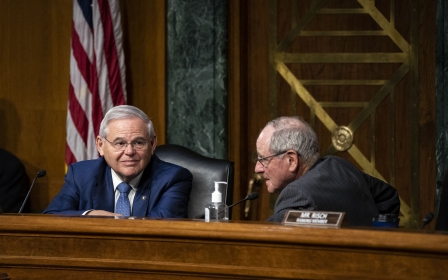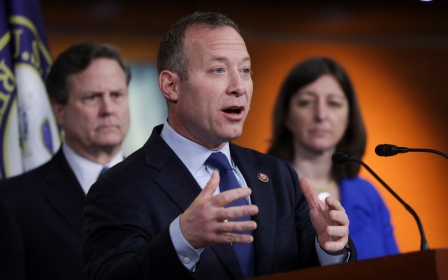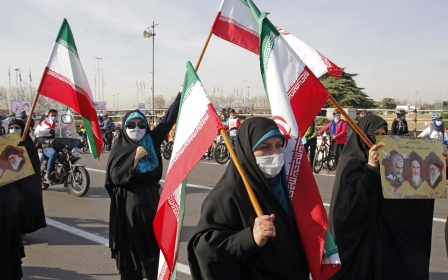US Senate passes motion barring Biden from removing IRGC terror designation

The US Senate passed a non-binding motion on Wednesday prohibiting the Biden administration from removing the foreign terrorist designation on Iran's Revolutionary Guard Corps (IRGC) as part of a revived nuclear deal.
The Senate voted 62-33 on the motion introduced by Republican Senator James Lankford, which also included language calling for any nuclear agreement to address Tehran's activities in the region and the trade of sanctioned Iranian oil with China.
The motion garnered the support of Democratic Majority Leader Chuck Schumer and Senators Ben Cardin and Joe Manchin, all three of whom opposed the 2015 deal with Iran.
Chris Coons, a key ally of President Biden who has been labelled the "shadow secretary of state", also voted in favour.
While the motion is non-binding, it will complicate attempts to revive the 2015 deal. The Biden administration already faces fierce criticism from Republicans over the negotiations, and recently, a small but growing number of Democrats have expressed their opposition to the current talks.
New MEE newsletter: Jerusalem Dispatch
Sign up to get the latest insights and analysis on Israel-Palestine, alongside Turkey Unpacked and other MEE newsletters
In a statement released after Wednesday’s vote, Coons said he continues to support Biden’s efforts to revive the deal but said he voted in favour of the motion "in order to encourage the Biden administration's negotiations to push for the strongest possible deal that addresses Iran’s nuclear weapons program and many other malign activities”.
The Trump administration unilaterally withdrew from the nuclear deal in 2018 and reimposed debilitating sanctions on Iran.
Tehran maintained its compliance with the accord for a few months before it began rolling back its commitments in 2019 and enriching uranium.
Last week, in appearances on Capitol Hill, US Secretary of State Antony Blinken defended the administration's efforts to revive the deal, saying that the Trump administration’s maximum pressure campaign had failed and that Iran’s nuclear programme has been "galloping forward" since the US pulled out of the agreement.
The motion comes as hopes for a revival of the accord appear to fade. Though neither side has officially called off an end to the talks, State Department spokesman Ned Price said on Wednesday that the US was now preparing equally for a deal and no-deal scenario, calling a return to mutual compliance “very much an uncertain proposition”.
The talks have stalled over Iran’s demand that the US lift the terrorism designation on the powerful Iranian Revolutionary Guard Corp (IRGC). That demand has not only galvanised opposition from Republican quarters in Washington and the US’s partners in the region, but a number of Democratic lawmakers as well.
Also on Wednesday, 86 senators voted in favour of a motion put forward by Republican Senator Ted Cruz asserting that terrorism-related sanctions on the Central Bank of Iran and the IRGC are necessary to limit cooperation between China and Iran.
Both motions were part of legislative talks on a bill aimed at addressing competition with China in the semiconductor industry. Lawmakers opposed to the nuclear deal have long highlighted Tehran's close ties with Beijing.
Earlier this year, Democratic Senator Robert Menendez, who chairs the powerful Senate Foreign Relations Committee and is a vocal opponent of the nuclear talks, urged the Biden administration to step up the enforcement of sanctions on Iranian oil sales to China.
Middle East Eye delivers independent and unrivalled coverage and analysis of the Middle East, North Africa and beyond. To learn more about republishing this content and the associated fees, please fill out this form. More about MEE can be found here.





